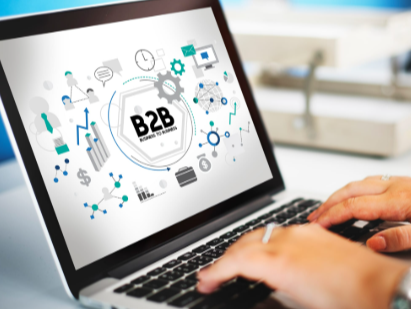B2B Performance Marketing Engine

Building a B2B Performance Marketing Engine That ScalesIn the competitive realm of business-to-business (B2B) marketing, a scalable performance marketing engine is essential for driving measurable results and sustaining long-term growth. Unlike traditional marketing, which often prioritizes broad brand awareness, B2B performance marketing focuses on specific, data-driven outcomes—such as lead generation, conversions, and revenue—while adapting to evolving market demands. By integrating advanced technologies, strategic alignment, and continuous optimization, businesses can create a robust engine that delivers high-quality leads and maximizes return on investment (ROI). This article outlines a strategic approach to building a B2B performance marketing engine that scales effectively, offering insights to help marketers achieve consistent, impactful results.
Setting a Strategic Foundation with Clear Goals
A high-performing B2B performance marketing engine begins with well-defined, measurable goals that align with business objectives. These might include increasing marketing-qualified leads (MQLs), boosting conversion rates, or achieving a specific revenue target. For instance, a SaaS company might aim to generate 200 MQLs per quarter from IT directors in the financial services sector, with a 15% conversion rate to sales-qualified leads (SQLs).Clear goals provide direction for campaign design, channel selection, and budget allocation. They also establish benchmarks for success, enabling marketers to track progress and adjust strategies as needed. By grounding the marketing engine in specific, outcome-focused objectives, businesses ensure every effort contributes directly to scalable growth, avoiding wasted resources on misaligned initiatives.
Defining a Precise Audience Profile
The success of a B2B performance marketing engine hinges on targeting the right audience. A detailed ideal customer profile (ICP) identifies the businesses and decision-makers most likely to benefit from the product or service, encompassing factors like industry, company size, job roles, and pain points. This precision ensures campaigns reach prospects with high conversion potential.For example, a company offering supply chain analytics might target operations managers at mid-sized manufacturers struggling with inventory inefficiencies. Data from CRM systems, customer surveys, and third-party platforms can refine the ICP, highlighting traits of top-performing clients. By focusing on this profile, marketers streamline efforts, directing resources toward prospects who drive pipeline growth and long-term scalability.
Leveraging Advanced Technologies for Efficiency
Technology is the backbone of a scalable B2B performance marketing engine, enabling automation, targeting, and optimization. Customer Relationship Management (CRM) platforms, such as Salesforce, track prospect interactions and prioritize high-intent leads, while marketing automation tools like HubSpot deliver personalized content at scale. Programmatic advertising platforms, using real-time bidding (RTB), optimize ad placements across channels like LinkedIn or industry websites.For instance, a cybersecurity firm might use a demand-side platform (DSP) to serve ads to compliance officers researching data protection solutions, adjusting bids based on engagement metrics. Analytics tools provide real-time insights into campaign performance, identifying high-performing channels and areas for improvement. By integrating these technologies, marketers create an efficient, scalable engine that adapts to growing demands without sacrificing precision.
Crafting Action-Oriented Content Strategies
Content is a critical driver of B2B performance marketing, designed to prompt specific actions like downloading a resource, registering for a webinar, or requesting a demo. Unlike brand-focused content, performance marketing content is tailored to the ICP’s needs, addressing pain points and demonstrating tangible value. This might include whitepapers, case studies, or ROI calculators that align with the buyer’s journey.For example, a cloud services provider could offer a downloadable guide on cost optimization for CFOs, followed by a case study for IT managers highlighting integration ease. By aligning content with funnel stages—awareness, consideration, decision—marketers drive measurable engagement, moving prospects closer to conversion. A scalable content strategy leverages templates and automation to maintain consistency while adapting to new audiences or markets.
Implementing a Multi-Channel Framework
B2B prospects engage with brands across multiple touchpoints, necessitating a cohesive multi-channel approach. Social media platforms like LinkedIn raise awareness, email campaigns nurture leads, and programmatic ads drive targeted traffic. A scalable marketing engine integrates these channels through a centralized platform, ensuring consistent messaging and seamless tracking.For instance, a consulting firm might use LinkedIn to promote a thought leadership webinar, retarget non-registrants with display ads, and follow up with personalized emails offering a case study. Marketing automation platforms track interactions, segmenting prospects based on behavior to deliver relevant content. This multi-channel framework maximizes reach and engagement, supporting scalability as campaigns expand to new markets or audience segments.
Read more: Building Strong Financial Systems for Competitive Growth 3284326925
Aligning Sales and Marketing for Seamless Execution
A common barrier to B2B performance marketing success is misalignment between sales and marketing teams, leading to unqualified leads or stalled pipelines. A scalable engine fosters tight collaboration, ensuring both teams share goals, metrics, and insights. Regular meetings to review lead quality, pipeline progression, and feedback help align efforts, creating a smooth handoff from MQLs to SQLs.For example, marketing might prioritize leads who engaged with a product demo, while sales focuses on those requesting proposals. A shared CRM platform provides visibility into prospect interactions, enabling data-driven decisions. This alignment ensures marketing delivers leads that sales can effectively convert, driving measurable results and supporting long-term scalability.
Optimizing with Data-Driven Insights
Continuous optimization is essential for a scalable B2B performance marketing engine. Key performance indicators (KPIs), such as cost per lead, conversion rates, and pipeline velocity, provide a clear picture of campaign effectiveness. Analytics platforms, integrated with CRM systems, track prospect behavior, revealing which tactics drive engagement and where adjustments are needed.For instance, if a campaign targeting HR directors shows high impressions but low conversions, marketers might refine ad copy to better address employee engagement challenges. A/B testing landing page designs or email subject lines can further enhance performance, identifying what resonates with the audience. By leveraging data to iterate, marketers ensure the engine remains agile, delivering consistent results as campaigns scale.
Personalizing for Complex Stakeholder Needs
B2B purchasing decisions often involve multiple stakeholders—executives, managers, and end-users—each with distinct priorities. A scalable performance marketing engine addresses this complexity through personalized messaging, using dynamic creative optimization (DCO) in programmatic platforms to tailor ads to specific roles. This ensures relevance and fosters consensus among decision-makers.For example, a project management software provider might serve ads highlighting cost savings to CFOs and usability to team leads. Personalized email campaigns can follow up with role-specific content, such as ROI calculators or user guides. By addressing diverse needs, marketers streamline decision-making, driving conversions and enabling scalability across complex accounts.
Ensuring Compliance and Ethical Practices
As data privacy regulations like GDPR and CCPA shape the digital landscape, a scalable B2B performance marketing engine must prioritize compliance. Transparent data practices, such as obtaining explicit consent for tracking and providing opt-out options, build trust with prospects. Programmatic platforms often include compliance tools, like consent management systems, to streamline adherence.For instance, a B2B marketer targeting European clients must ensure ads comply with GDPR, using anonymized data where necessary. Ethical practices not only mitigate legal risks but also enhance credibility, fostering long-term relationships with prospects. By embedding compliance into the engine, marketers ensure scalability across global markets without compromising trust.
Fostering Long-Term Relationships for Sustained Growth
A scalable performance marketing engine extends beyond lead generation to nurturing long-term client relationships. Post-conversion strategies, such as comprehensive onboarding, regular check-ins, and upselling opportunities, maximize client lifetime value. For example, a software provider might offer dedicated support during implementation, followed by quarterly reviews to identify new needs.Client feedback, gathered through surveys or CRM data, informs strategy refinements, ensuring ongoing relevance. By prioritizing client success, marketers create a cycle of loyalty and advocacy, driving renewals and referrals that fuel sustained pipeline growth. This long-term focus ensures the engine delivers measurable results over time, supporting scalable business success.
Driving Scalability Through Strategic Integration
Building a high-performing B2B performance marketing engine requires a strategic blend of clear goals, precise targeting, and advanced technologies. By crafting action-oriented content, leveraging multi-channel engagement, and optimizing with data, marketers can drive measurable results, from increased leads to higher ROI. Sales-marketing alignment, personalization, and compliance further enhance impact, ensuring the engine scales efficiently across markets and audiences. As B2B markets evolve, a well-integrated performance marketing engine empowers businesses to achieve sustainable growth, build lasting relationships, and thrive in a competitive landscape



